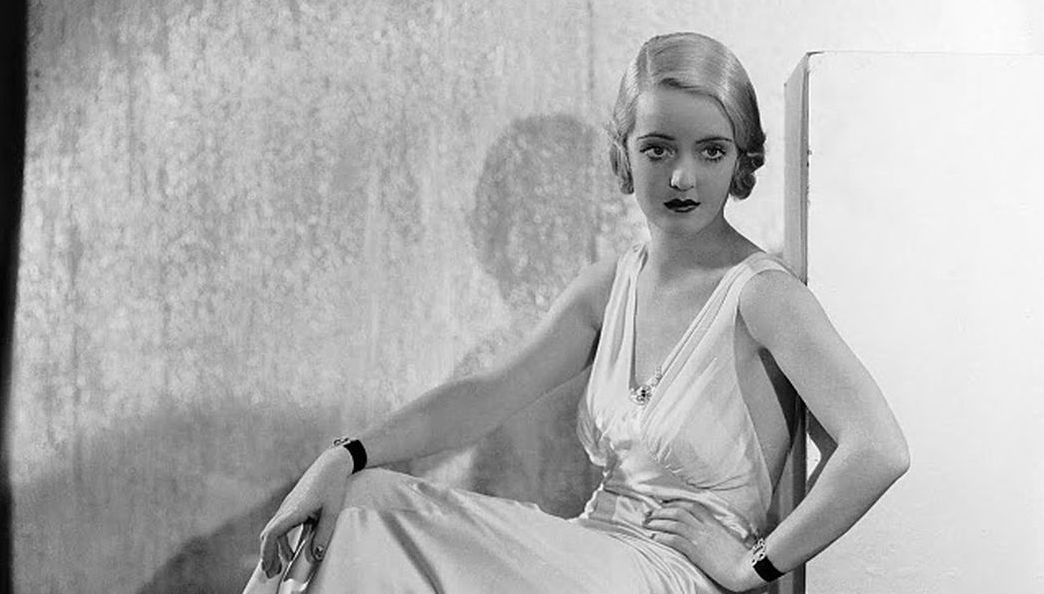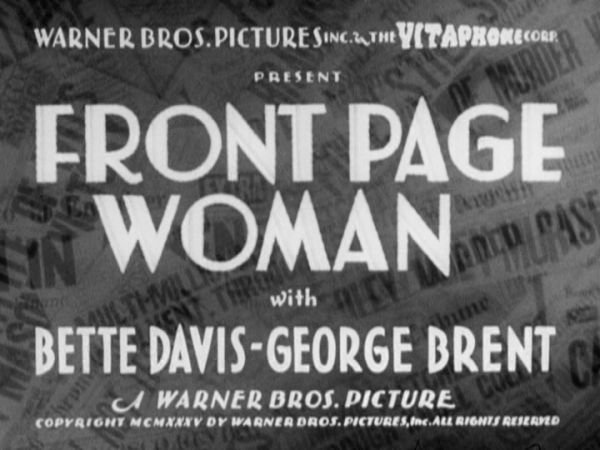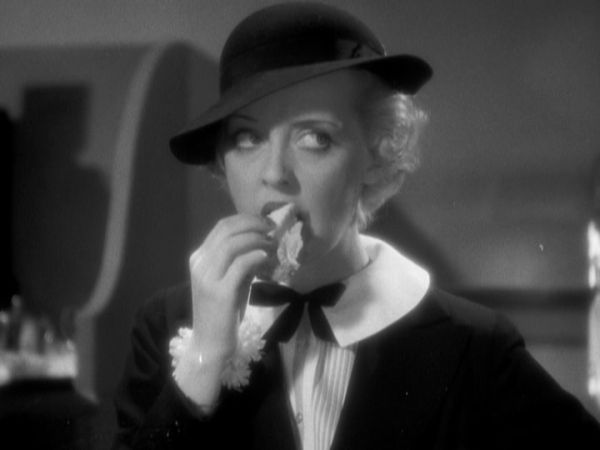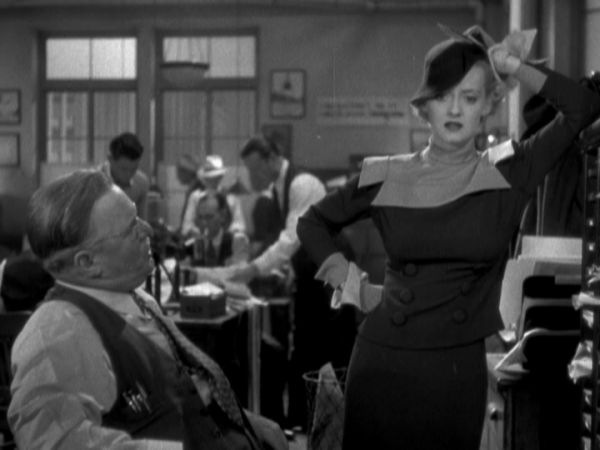Several years ago, when The SBBN Bette Davis Project was still in its infancy, I reviewed the early Bette programmer Front Page Woman (1935). In short, I didn’t like it. Filmed immediately after Bette’s The Girl From 10th Avenue, Warner Bros. saw fit to use six of the same cast members and at least two of the same sets, as well as a plot that was a slightly madcap version of the films Kay Francis was assigned that same year, up to and including the same male co-star.
Bette is Ellen Garfield, reporter assigned to the execution of a singer convicted of murdering her lover. Ellen’s boyfriend Curt (George Brent), also a reporter, tries to talk her out of attending the execution. In fact, he wants her to stop working altogether and get married like a good woman should. She refuses, but faints dead away after the execution, so he writes her story for her as she recovers. A mix-up causes both his paper and hers to run the same story, nearly getting them both fired. Instead, it spurs an intense rivalry where Ellen promises to uncover the murderer in a high-society crime case, and Curt bets her that she can’t, and if he wins, she must quit her career and marry him.
It’s all supposed to be a romantic comedy, but Michael Curtiz can’t help but inject some hard-boiled journalistic action into the film while at the same time allowing the most outrageous, unbelievable courtroom antics, and ultimately it fragments the plot. Comedy mostly wins out, but the end result is still frustrating, as the shenanigans in Front Page Woman are unearned thanks to an overall lack of energy. Bette walks through this role, which, as a commenter over on the old post pointed out, was a year after Of Human Bondage. That she would be put into a lacklustre programmer like this in the first place after such a breakout performance is unthinkable, and I have to assume her performance suffers from her lack of enthusiasm. Roscoe Karns is more skeevy than funny, and strangely paired with George Brent who was already the comic relief, making these two comedy sidekicks without a leader. Personally, I find Brent much more enjoyable in dramas — his perfs in Jezebel and In This Our Life are terrific.
Still, there are times when a classic film fan just wants to watch a Warner programmer: No muss, no fuss, a big star in an early role, and in that aspect, Front Page Woman delivers. You’ve got Bette and George together, which is always fun. You’ve also got favorite supporting players like Winifred Shaw, J. Carrol Naish, Grace Hale and Joseph Crehan, and about a dozen more that’ll make you go, “Hey, it’s that guy!” Everything is technically competent and it’s zippy like you’d expect. The Warner Archive MOD DVD of the film looks terrific — all the screencaps here are from that release. Front Page Woman has that black and white nitrate glow that we classic film fans wear around us like a comfy afghan
Stay tuned for a Front Page Woman photo gallery to be posted later today.





I saw this movie some years ago and remember enjoying at least the first part of it, which (I’m trusting my memory here, always a dicey idea) did a good job of nailing the atmosphere of newspapers (at least as they used to be). As an ex-newspaper person with many years’ experience, I was sure that someone involved in the film had a newspaper background, and I see that Laird Doyle (who, according to IMDB, did the dialogue) had a newspaper background.
After both papers run the same execution story, I think the copy boy (who screwed up) asks the editor something like, “This is a real bad thing, isn’t it?’
“What do you care?” the editor says. “You’re not working here anymore.”
The newspaper world I began working in many years ago wasn’t quite that brittle, but it wasn’t very far from it, and I wouldn’t be surprised if Doyle had heard a similar exchange during his experience. (I wonder whether some newspaper folks-turned-screenwriters felt they had died and gone to heaven — they were making good money coming up with silly plots and, as a bonus, could get revenge on bosses who’d screwed them over by making fun of them.)
I wouldn’t mind seeing “Front Page Woman” again, though I suspect that the romance part (especially the “give up your job and marry me” bit) might well make it a little hard to take these days.
Interesting that Laird Doyle was a former newspaperman. It certainly makes sense, and I very much wished the film was more about the newspaper world and less about that crazy romance nonsense. It could have been another Headline Shooter or Picture Snatcher so easily… well, without the pre-Code elements since FPW is from 1935.
Curtiz is a fine director but too often he was tonally inconsistent, such as in another Bette movie, Cabin in the Cotton, where the movie was 95% pro-racist propaganda with a finale that made it clear he had no idea he was being pro-racist. I feel there’s something similar here, like he didn’t realize how sexist the obstacles he put up for Bette to overcome were, and how it all overwhelmed the otherwise good story underneath.
I was starting to think I was the only one who didn’t like this one. Your mention of ‘frustrating shenanigans’ around the courtroom scenes perfectly summed up my feelings on this one. I was left shaking my head too. You’re right though, we get enough familiar faces passing through that I’m willing to forgive them.